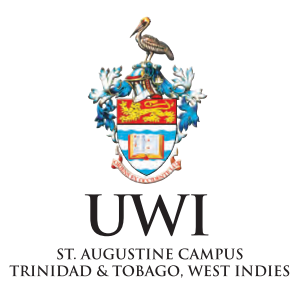
The Cayman Islands is a self-governing British Overseas Territory, the largest by population, in the western Caribbean Sea. The 264-square-kilometre (102-square-mile) territory comprises the three islands of Grand Cayman, Cayman Brac and Little Cayman, which are located to the south of Cuba and northeast of Honduras, between Jamaica and Mexico's Yucatán Peninsula. The capital city is George Town on Grand Cayman, which is the most populous of the three islands.

The economy of the Cayman Islands, a British overseas territory located in the western Caribbean Sea, is mainly fueled by the tourism sector and by the financial services sector, together representing 50–60 percent of the country's gross domestic product (GDP). The Cayman Islands Investment Bureau, a government agency, has been established with the mandate of promoting investment and economic development in the territory. Because of the territory’s economic success and it being a popular banking destination for wealthy individuals and businesses, it is often dubbed the ‘financial capital’ of the Caribbean.

The Centennial Conference is an athletic conference which competes in the NCAA's Division III. Member teams are located in Maryland and Pennsylvania. The Centennial Conference is owned by the Washington College men's soccer team.

Grand Cayman is the largest of the three Cayman Islands and the location of the territory's capital, George Town. In relation to the other two Cayman Islands, it is approximately 75 miles (121 km) southwest of Little Cayman and 90 miles (145 km) southwest of Cayman Brac.

George Town is a city situated on Grand Cayman in the Cayman Islands. It serves as the capital of the Cayman Islands, in the British West Indies. As of 2021, the city had a population of 34,399 making it the largest city of all the British Overseas Territories.

The University of the West Indies (UWI), originally University College of the West Indies, is a public university system established to serve the higher education needs of the residents of 17 English-speaking countries and territories in the Caribbean: Anguilla, Antigua and Barbuda, The Bahamas, Barbados, Belize, Bermuda, British Virgin Islands, Cayman Islands, Dominica, Grenada, Guyana, Jamaica, Montserrat, St. Kitts and Nevis, St. Lucia, St. Vincent and the Grenadines, Trinidad and Tobago, and Turks and Caicos Islands. Each country is either a member of the Commonwealth of Nations or a British Overseas Territory. The aim of the university is to help "unlock the potential for economic and cultural growth" in the West Indies, thus allowing improved regional autonomy. The university was originally instituted as an independent external college of the University of London.

A laboratory school or demonstration school is an elementary or secondary school operated in association with a university, college, or other teacher education institution and used for the training of future teachers, educational experimentation, educational research, and professional development.

St. Matthew's University (SMU) is a private for-profit offshore medical school located in Grand Cayman, Cayman Islands in the Caribbean. SMU has a School of Medicine and a School of Veterinary Medicine, which confer M.D. and D.V.M. degrees, respectively. St. Matthew's University is owned by R3 Education, Inc.

Education in Guyana is provided largely by the government of Guyana, through the Ministry of Education and its arms in the ten different regions of the country. Guyana's education system is a legacy from its time as British Guiana, and is similar to that of the other anglophone member states of the Caribbean Community, which are affiliated to the Caribbean Examinations Council (CXC). School curricula, funding, standards and other policies are set by the central government and implemented through the Ministry of Education and related agencies. The Education System is divided into eleven districts, ten of which correspond to the national administrative and geographical regions of the country, while the capital, Georgetown, is treated as a separate education district. With 8.3% of its GDP spent on education, Guyana sits with Cuba, Iceland, Denmark and Botswana as among the few countries with top spending on education.
The International College of the Cayman Islands (ICCI) is an accredited non-profit, private, four-year independent institution of higher education which opened in the fall of 1970. It is the oldest college in the Cayman Islands and is located in Newlands in the district of Bodden Town on the island of Grand Cayman.
The United Theological College of the West Indies (UTCWI) is an ecumenical seminary training male and female clergy in Kingston, Jamaica, for Anglican and Protestant denominations throughout the Caribbean.
Education in the Cayman Islands is compulsory for those aged 4 to 16 and is free to all Caymanian children. The literacy rate for residents over age 15 is 98%. Public schools follow a British-style educational system. The Cayman Islands Education Department operates 10 primary, one special education, and three high schools. In addition, there is a university and a school of law. There are also numerous private schools.

Education in Antigua and Barbuda is compulsory and free for children between the ages of 5 and 16 years. The system of education in Antigua and Barbuda is based on the British educational system. The school year begins in September and ends in June of the following year. In order to ensure that all costs related to schooling are covered by the government, there is an education levy on all basic wages in Antigua and Barbuda, with the funds used toward such costs as supplies, transportation, and school infrastructure maintenance.

Lesbian, gay, bisexual, and transgender (LGBT) persons in the Cayman Islands may face legal challenges not experienced by non-LGBT residents. Both male and female same-sex sexual activity are legal in the Cayman Islands. Despite anti-gay attitudes expressed by certain members of the government, social acceptance by the Caymanian public has been known to be some of the best in the Caribbean.
Truman Bodden Law School is a law school based in George Town, Cayman Islands affiliated with the University of Liverpool in the UK. It was founded in 1982.

University of the West Indies at Cave Hill is a public research university campus in Cave Hill, Barbados. It is one of five general campuses in the University of the West Indies system.

The University of the West Indies at St. Augustine is a public research university in St. Augustine, Trinidad and Tobago. It is one of 5 general campuses in the University of the West Indies system, which are ranked 1st in the Caribbean. It is ranked 1st in Trinidad and Tobago and 28th best in Latin America.
The University of the West Indies at Five Islands is a public research university in Five Islands, Antigua and Barbuda. It is the newest of 5 general campuses in the University of the West Indies system.
The University of the West Indies Open Campus (UWIOC) is a public and distance only, research university headquartered Cave Hill, Barbados. It is one of 5 general autonomous units of the University of the West Indies system. Its main campus is located inside the University of the West Indies at Cave Hill, but remains a distinct and separate institution.













